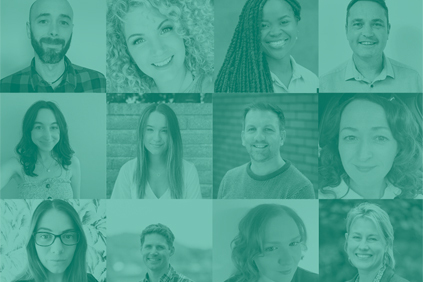Understanding the challenge
Planning is vital for our communities. It protects us from poor developments, guides how our towns and cities evolve, and yes - it even stops your neighbour from blocking your sunlight with an oversized extension!
But planning relies on layers of complex laws, legislation and policies that can be challenging for people to navigate. Our discovery project aimed to understand these challenges and identify solutions.
Why we used a user-centred approach
We put people at the heart of our research - from homeowners applying for permission to build an extension, to planning officers processing applications. By understanding everyone's experiences, we can create meaningful improvements.
Our research process
What we did:
- Conducted comprehensive desktop research across local council planning websites
- Identified and spoke to key stakeholders throughout the planning system
- Consulted planning experts to gain deeper insights
- Attended the Digital Planning Winter School in Cardiff to explore innovative digital tools
What we found:
The planning system in Wales faces significant challenges:
- Resource constraints: Difficulties recruiting and retaining planning experts
- Technology barriers: Outdated and inefficient IT systems
- Inconsistency: Different approaches across local planning authorities
- Complexity: Information that's difficult for users to understand
- Quality issues: Poor standard of many planning applications
- Communication gaps: Challenges sharing information effectively with the public
- Limited feedback: Few opportunities for users to provide input
- Trust deficit: Public scepticism about planning processes
- Payment confusion: Unclear fees and payment methods
Our recommendations
To make planning more accessible and effective, we recommend:
Improve the digital planning application process
Improving the planning application system in Wales will streamline the application process, saving time and resources while speeding up decisions. There lacks and end-to-end blueprint of the service at both the front and back-end of the service, particularly a view of the dependencies and data flows across departments or organisations.
Improve user experience
There is sufficient evidence that improving the user interphase and content for the front-end view of the planning service is likely to improve efficiencies and reduce avoidable contact to the LPA.
Simplify policy language
The Welsh planning system is impacted by multiple policies which can sometime conflict or have opposing demands on the planning services. For example, environmental policies may pull in a different direction to addressing the housing stock in Wales – planners have a difficult role to navigate and then communicate this clearly. Simplification of the language in policy or when policy directly influences decision making, without losing the importance or nuance of the points being made, may improve trust and understanding in the complex nature of planning services.
Invest in technology
From initial inspection (this discovery did not complete a deep dive into the tech stack), we would recommend a review and work to understand and improve use of technology to address many of the issues and pain points identified in this research.
Training and support for planning teams
A consistent theme within the research was the disconnect between planning and digital or technology teams. There was also direct feedback about retention and skills within planning teams.
We recommend improving training and communications for planning officers to create opportunities for planning officers to develop solutions collaboratively.
What's next
We're moving forward by focusing on the pre-application phase of the planning process. We're partnering with Welsh Government and three local authorities: Cardiff, Vale of Glamorgan, and Gwynedd.
In this next phase, we'll:
- Map the complete pre-application journey from start to finish
- Understand how this early stage connects to the full planning process
- Identify specific needs of both applicants and planning authorities
- Target key pain points for improvement
- Develop a minimum viable product to address critical issues
Our goal is to create solutions that can be shared across Wales, making planning more accessible, efficient, and user-friendly for everyone.

